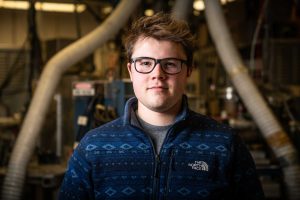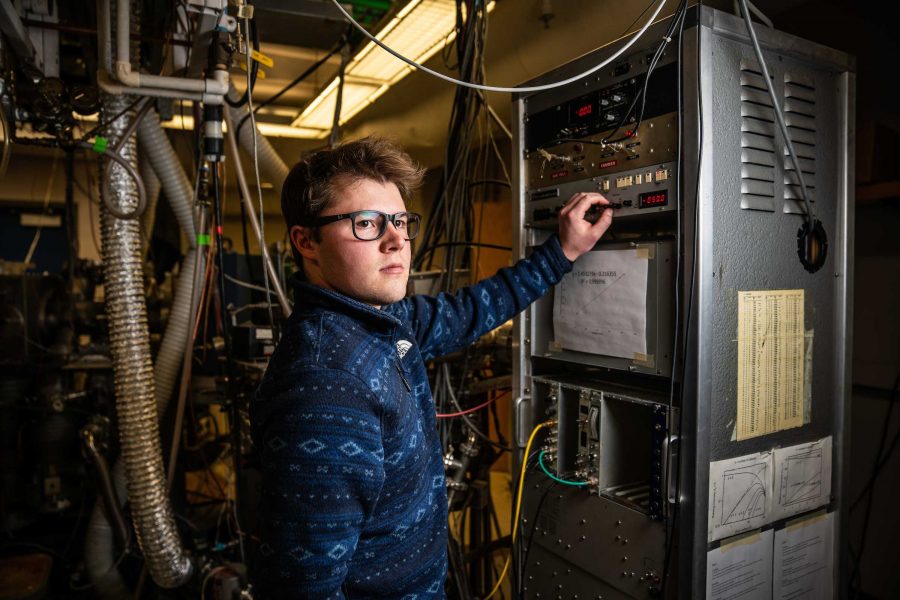Cameron Owen, from Boise, Idaho, is a senior studying chemistry and physics with a minor in mathematics and is the fourth consecutive University of Utah student to be awarded the Churchill Scholarship to study at the University of Cambridge in the United Kingdom.
The Churchill Scholarship is a prestigious scholarship that was set up at the request of Sir Winston Churchill to create a way for Americans and British to further scientific advancements on both sides of the Atlantic Ocean. The first Churchill Scholarship was awarded in 1963 with three recipients. Now, the Winston Churchill Foundation awards at least fourteen scholarships per year with an acceptance rate of 6.3 percent.
The recipients of the award must show outstanding academic achievement. To apply, the students must be enrolled at or recently graduated from one of the 110 institutions that are allowed to nominate an applicant. Even then, each institution is only allowed to endorse two applicants. The U became one of the 110 institutions in 2014.

Owen first looked at the Churchill Scholarship because of “the success the U has had in recent years.” When he looked at specific researchers at Cambridge and was drawn to the work of Dr. Stephen Jenkins because his work aligned with Owen’s interests, applying for the scholarship “began to make more and more sense.” He had previously set a goal to go to graduate school, but specifically with the goal “to continue my studies on the activation of methane and other small molecules, because I believe climate change and global warming should be a top priority for scientists as our society continues to prioritize nonrenewable resources like natural/shale gas.”
Owen is a part of the Armentrout Research Group and is currently leading two projects at the U. He explained that for the first project they are “looking at how gold atoms pull apart methane, and more specifically, what products are yielded in the reaction.” The project will result in a joint publication with The Air Force Research Laboratory. The second project, focusing on the rare-earth element holmium, also in collaboration with the Air Force, is working to “secure telecommunication pathways via metal releases into the ionosphere.”
At Cambridge, Owen is planning to work with Dr. Jenkins “on the dissociative chemisorption of small molecules on metal surfaces.” In other words, Owen “will use theoretical calculations to see how these molecules (methane, oxygen, nitrogen) fix themselves to these surfaces, as well as how they break apart in the process.”
When asked what he thinks sets him apart from the other applicants, Owen replied, “The Churchill Scholarship looks for candidates that have so-called ‘jagged edges,’ so I am fairly confident that my work in gas-phase ionic physical chemistry helped strengthen my case.” In his concluding remarks, Owen wanted to thank his advisor, Dr. Peter B. Armentrout “who allowed me to work in his lab since I was a freshman. His guidance has been instrumental to my progression as a scientist and future professional in the field.”
Owen plans on earning a Ph.D. after concluding his year at Cambridge and is looking at some prestigious schools, but will not make a final decision until April.


